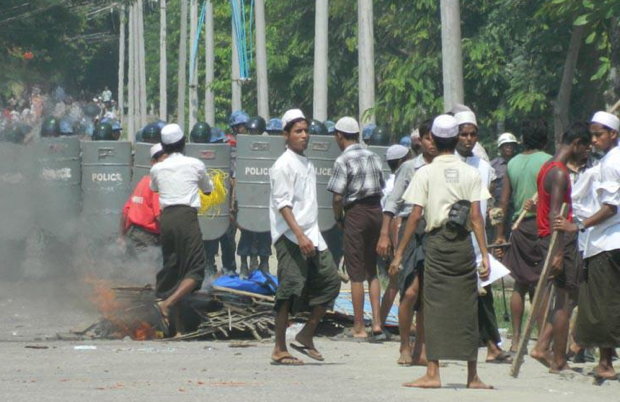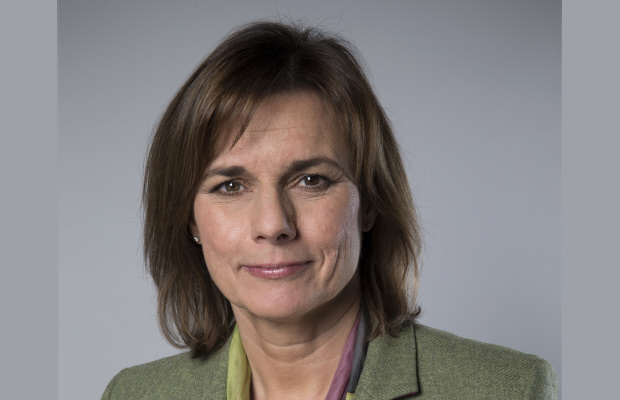Sweden, Finland and the United Nations Population Fund (UNFPA) has joined forces in strengthening women’s and girls’ rights and to prevent and respond to violence committed against women and girls in Myanmar, SIDA (Swedish International Development Agency) reports.
The focus is on supporting the most vulnerable women and girls in the most remote and conflict-affected areas in Myanmar, including through support to sexual and reproductive health along with counselling and treatment. The decision on the joint initiative ‘Women and Girls First’ project was signed on 10 December, which is also the Human Rights Day, as well as the culmination of the global campaign ‘16 days of activism against gender violence’.
In Myanmar, many women and girls live under difficult conditions in conflict-affected areas; here is the highest number of internally displaced persons in South East Asia, and women and girls are subjected to various types of violence and systematically being raped both within the home as well as by the military. Poverty is widespread and there is a small or limited access to emergency medical care.
In Rakhine state the discriminated group of Rohingya are also based who, although having lived in Myanmar for generations, lack citizenship and are being excluded from work, school and lack access to care and support, but will be receiving support within the framework of this cooperation.
The aid consists in 100 million SEK, of which the Swedish part is 20 million SEK during the years 2015 to 2018. The initiative covers preventive measures in the areas of reproductive health and emergency medical care, as well as care, support and treatment for women subjected to violence and rape. Another aim is to increase women’s and girls’ knowledge about their rights, and also to mobilise men and boys in gender equality work. Improved health for women and children, with a special focus on sexual and reproductive health and rights, is also one of three focus areas in Sweden’s bilateral cooperation strategy for the country.

“I welcome the launch of this initiative together with our cooperation partners, UNFPA and Finland, to address violence against women and girls. This is particularly important in areas of conflict and where certain ethnic groups, such as the Rohingya, experience discrimination and lack protection and care in the event of abuse,” says Sweden’s Minister for Foreign Affairs Margot Wallström.
“The recent elections show that the people of Myanmar voted for a change towards democracy, and we look forward to working closely with the new government,ˮ she adds.
One important step in the democratisation process is to increase respect for the human rights of all people in Myanmar, regardless of ethnicity, religion or sex. This is why it is important to change men’s attitudes, increase women’s knowledge about their rights and contribute to the building of a state under the rule of law, where everyone is given protection.

“This initiative is an important part of Sweden’s support to Myanmar. Promoting gender equality and women’s and girls’ enhanced possibilities is a prerequisite for Myanmar being able to move towards a more democratic society. ‘Women and Girls First’ aims to enable just this kind of development,ˮ says Swedish Minister for International Development Cooperation Isabella Lövin.
Greater risk of maternal mortality
Women and girls who are displaced or living under other difficult circumstances have limited access to basic support in terms of sexual and reproductive health which increases the risk of maternal mortality. They lack access to contraceptives, to midwives and to secure deliveries. In Myanmar, women are at a greater risk in terms of maternal mortality than the average in Southeast Asia, and even more in conflict areas. Maternal mortality is breathtakingly high; 140 women per 100 000 pregnancies and 200 per 100,000 for women in Rakhine.
“It is extremely pleasing that we can contribute to this work focused on the areas of Rakhine, Kachin and northern Shan State, where the maternal mortality rate is exceptionally high, and where the population suffered from internal strife and lack of basic rights for a long time,” says Tomas Lundström, Counsellor at the Swedish section office in Yangon.
In Rakhine the initiative aims to reach 60,000 pregnant and lactating women. The support also includes basic health care equipment, contraceptives, medicines and special kits to be distributed to women who have been raped.
Photo: Kristian Pohl/Government Offices of Sweden

